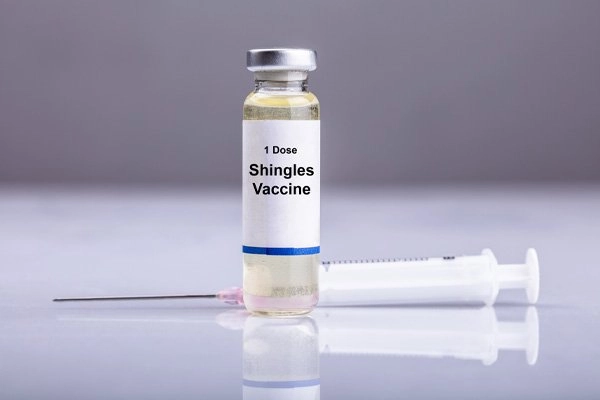The COVID-19 pandemic has led to an unprecedented demand for testing, prompting the development of several testing methods, including PCR and antigen testing. Antigen tests, which detect specific proteins on the surface of the virus, have emerged as a valuable tool in controlling the spread of COVID-19 due to their rapid turnaround time and lower cost compared to PCR tests.
However, there have been concerns about the accuracy and reliability of antigen tests in Ireland and other countries, with some skeptics claiming that they are not as effective as PCR tests. In this article, we will explore the accuracy and reliability of antigen tests, examine common misconceptions about their performance, and discuss their role in COVID-19 screening programs.
What is Antigen Testing?
Antigen tests are diagnostic tests that detect the presence of specific proteins on the surface of a virus. In the case of COVID-19, antigen tests detect the presence of the SARS-CoV-2 virus in respiratory samples such as nasal swabs or saliva. Antigen tests work by mixing the respiratory sample with antibodies that bind to the SARS-CoV-2 virus if it is present. If the virus is present in the sample, it will bind to the antibodies and produce a detectable signal, indicating a positive test result.
Antigen tests are considered rapid diagnostic tests because they can produce results within 15-30 minutes, making them an attractive option for COVID-19 screening in settings such as schools, workplaces, and airports.
Accuracy of Antigen Testing
The accuracy of antigen testing has been a subject of debate, with some critics claiming that they are less accurate than PCR tests. However, research has shown that antigen tests can be highly accurate when used in the appropriate settings and populations.
The sensitivity of antigen tests, which refers to their ability to detect true positive cases, varies depending on the viral load of the patient. In patients with a high viral load, antigen tests can have a sensitivity of up to 90%, meaning that they can correctly identify 90% of positive cases. However, in patients with a low viral load, the sensitivity of antigen tests may be lower, leading to false negative results.
The specificity of antigen tests, which refers to their ability to correctly identify true negative cases, is generally very high, with most tests having a specificity of 97-100%. This means that they are highly accurate in identifying people who do not have COVID-19.
Overall, the accuracy of antigen tests is affected by several factors, including the type of test used, the viral load of the patient, and the timing of the test. It is important to note that antigen tests are not meant to replace PCR tests but rather serve as a complementary testing method for COVID-19 screening.
The specificity of antigen tests, which refers to their ability to correctly identify true negative cases, is generally very high, with most tests having a specificity of 97-100%. This means that they are highly accurate in identifying people who do not have COVID-19.
Overall, the accuracy of antigen tests is affected by several factors, including the type of test used, the viral load of the patient, and the timing of the test. It is important to note that antigen tests are not meant to replace PCR tests but rather serve as a complementary testing method for COVID-19 screening.
Common Misconceptions about Antigen Testing
There are several common misconceptions about the accuracy and reliability of antigen testing. One of the most prevalent myths is that antigen tests are not accurate and should not be used for COVID-19 screening. However, as discussed earlier, antigen tests can be highly accurate when used in appropriate settings and populations.
Another common myth is that antigen tests are only useful for detecting symptomatic cases of COVID-19. While antigen tests are less sensitive than PCR tests, they can still detect asymptomatic cases, especially in patients with a high viral load. This makes them an important tool for detecting and controlling the spread of COVID-19 in settings such as schools, workplaces, and nursing homes.
The Role of Antigen Testing in COVID-19 Screening Programs
Antigen testing has become a valuable tool in COVID-19 screening programs, especially in settings where rapid results are needed, such as schools, workplaces, and airports. Antigen testing can help identify positive cases quickly, allowing for prompt isolation and contact tracing to control
How To Choose Lab For Antigen Test
When choosing a lab for an antigen test, there are several factors to consider:
Accreditation and certification:
Look for a lab that is accredited and certified by a reputable organization, such as the Clinical Laboratory Improvement Amendments (CLIA) or the College of American Pathologists (CAP). This ensures that the lab meets quality standards and follows proper testing procedures.
Turnaround time:
Consider the lab’s turnaround time for test results. Some labs may offer same-day or next-day results, while others may take several days.
Cost:
Antigen tests may vary in cost depending on the lab, so consider your budget and any insurance coverage you may have.
Location:
Choose a lab that is convenient and accessible for you to get to, especially if you need to get tested multiple times.
Reputation and reviews
Check the lab’s reputation and reviews online, especially from previous patients, to get an idea of their experience and quality of service.
Accuracy:
It is important to choose a lab with a high level of accuracy in its testing methods. Check the lab’s accuracy rate and ask about their testing procedures to ensure that you are getting reliable results.
The Bottom Line-:
That was all about the Antigen test. Hope you like the article!

